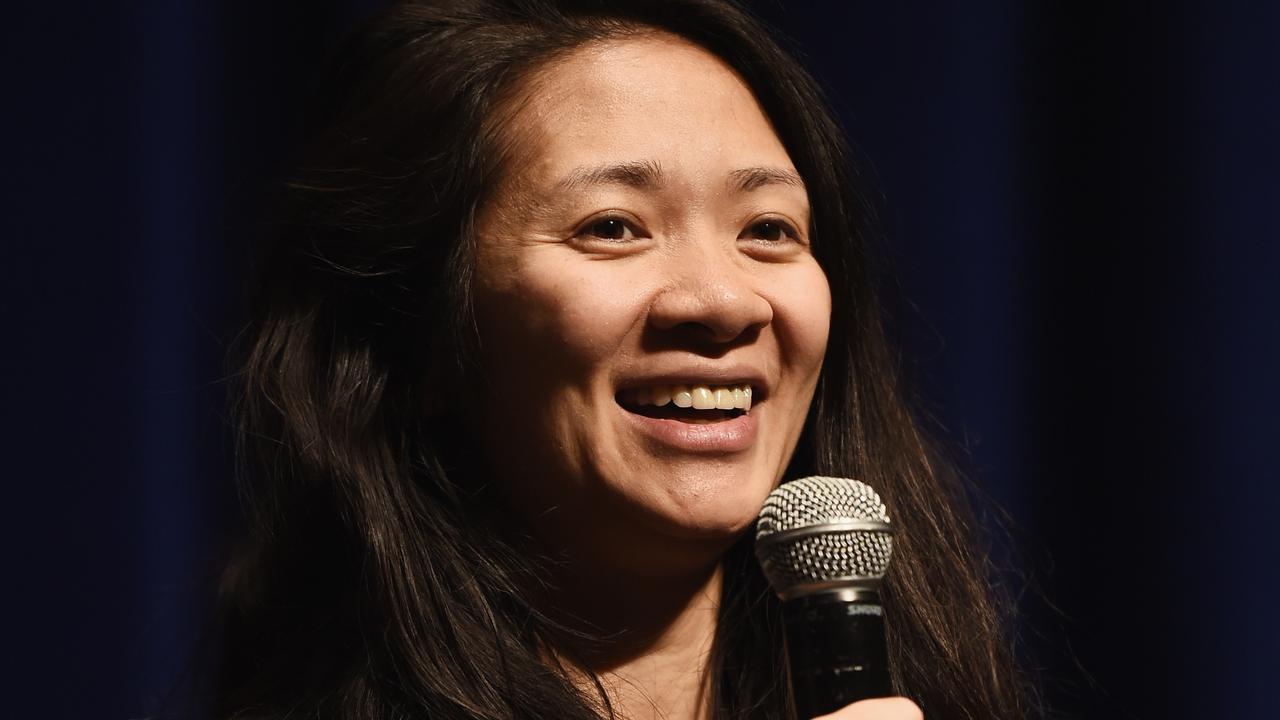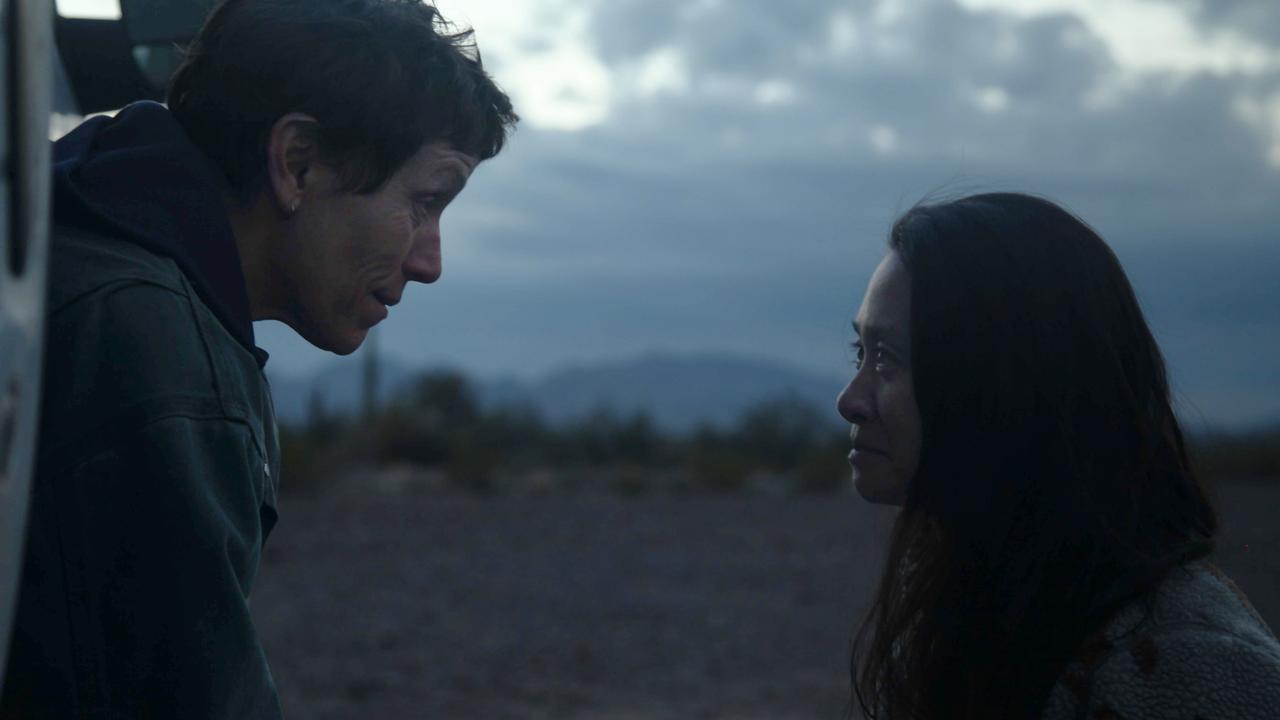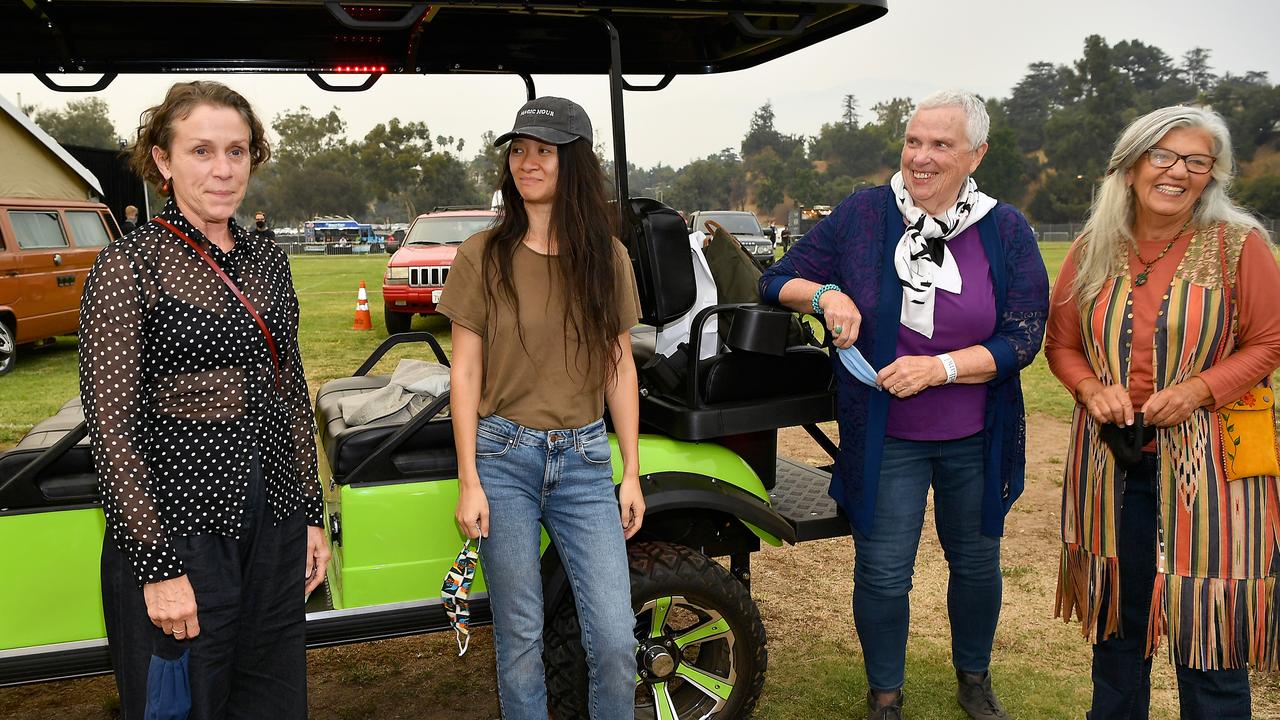How outsider Chloe Zhao captured the American heartland in Nomadland
When you think of the storyteller for a truly American tale, you don’t usually think of a petite woman from Beijing.
If there’s a filmmaker who was going to capture the humanity of the American heartland, you might not expect it to be a petite woman from Beijing.
Nomadland is Chinese-born Chloe Zhao’s third feature, a ruminative and emotionally poignant story about a woman in her 60s who lives a nomadic life out of a camper van after her Nevada company town collapses in the wake of the GFC.
Already a favourite on the festival circuit after her first two films, Songs My Brother Taught Me and The Rider, Zhao is about to become a household name. Nomadland is heavily tipped to be a strong Oscars contender for her and star Frances McDormand.
Plus, she just directed a Marvel movie, Eternals, which is currently slated to be released at the end of 2021.

RELATED: The 11 best films of 2020
Zhao, 38, is still a Chinese citizen but has lived in the US for more than two decades, having first moved to California for high school. But she remains something of an outsider.
Perhaps it’s that outsider’s perspective that gives her different insight into the specific cultures and communities she’s captured on film, from the grey nomads to The Rider’s rodeo cowboys.
“I’ve been thinking about it a lot because I used to think [it didn’t matter that I wasn’t born here],” Zhao tells news.com.au over Zoom from her home in Los Angeles. “But as time goes on, especially this year, maybe it does.
“Because I don’t have the same kind of burden on my shoulders or feel the weight of history, and is not my country, ultimately. So maybe it's easier for me than how I see my friends are reacting, especially this year."*
Despite having traversed the American heartland for many years while on the road creating her work – she wanted to make Nomadland because she could relate to that road life – Zhao is upfront about being a “coastal liberal”, the term that generally encompasses progressive Americans who live on the east or west coast.
That particular identifier has long been in the American public discourse but has really gained momentum in the past few years as the political differences between urban dwellers on the coasts and rural communities in the heartland turned from a divide into a chasm.

RELATED: Nomadland movie review
“I think there is a desire from people in New York, Los Angeles, maybe Massachusetts, to learn and get to know the people that I don’t necessarily agree with, or who live differently to me. Because I feel this disconnect,” she explains.
“This country is so vast, and I didn’t know the middle of the country, so I really spent one decade in coastal towns and then another in the heartland, trying to understand this country more.
“It doesn’t change my political point of view, but it does make me feel that need for us to connect more.”
For someone like Zhao, not being weighed down by American history also means she’s not complacent about it. Because it’s not her birthright, that curiosity to learn more about her adopted home is not necessarily something that naturally occurs to those for whom it is.
Zhao says that those who think America is two different countries often haven’t been to those other parts of the country or gotten to know the people there.
“That’s why the road attracted me, because when you’re on the road and when you don’t have all these things that protect you, the modern conveniences, then you end up getting down to the basics of human beings supporting each other and surviving in nature.
“You’d be surprised at how many people can put politics aside and discuss how to poop in a bucket.
“To me, that’s a step forward, not backwards. We’re letting the things that society tell us that we are, the things that are superficial, define us and define each other. As opposed to really looking into someone’s eyes and then acknowledging them as a human being.”

RELATED: Wonder Woman 1984 stars on the blockbuster sequel
Nomadland, like the films Zhao made before it, is not political, even with the hum of the recession in the background.
It’s the humanism in her work that makes Zhao such an effective storyteller. We don’t see her characters as belonging to some political tribe or voting for a particular political candidate.
In Zhao’s movies, that’s not what defines them. What defines them are their inner lives, how they treat their friends and family, how they move through their worlds.
And moving into and through the worlds of those whose stories she tells is why her work feels so specific. For Nomadland, that means travelling in and working out of camper vans for the four months of filming.
“We didn’t always sleep in them because sleeping in the vehicles takes a lot of time, even just using the bathroom,” Zhao says. “If you’re on your own schedule, great. If you’re trying to make a movie at the same time, that’s insane.
“We stayed in motels mostly and some of them weren’t as comfortable as the van, but at least they had plumbing.”

That willingness to immerse herself into those communities is why her movies are filled with non-actors. Brady Jandreau, the lead actor in The Rider, is a real-life rodeo cowboy who really did have a significant accident after falling off a horse.
And Nomadland is peppered with actual van folk who appear as versions of themselves, including Swankie, Bob Wells and Linda May.
The non-actors’ presence gives Zhao’s film authenticity and authority, two characteristics filmmakers frequently fail to convey when they wander into worlds that are not theirs.
Especially when you bring with you two professional actors in McDormand and David Strathairn though Zhao describes both as having “very little vanity” who “completely stepped out of their world and came into this one”.
Asked if having real-life folks on board is akin to having permission from those communities to tell their stories, Zhao says they’re a “good kind of moral police for yourself.”
“How do you know if you’re doing the right thing or wrong thing? Because I know a lot of films are criticised for being exploitative but then you meet the filmmaker and they didn’t mean it,” she says.
“What gets me to bed at night is that the people I work with, whether they’re young or they’re older, these families and communities, they know what’s up. They know if you’re in there with an agenda or if you’re exploiting them.
“So, if they are letting me in, I feel pretty good about it.”
(*Editor's note: A version of this article originally published in December incorrectly quoted Ms Zhao as saying America is "now" her country, it has been updated to reflect she said "not" her country.)
Nomadland is in cinemas from Thursday, March 4
Share your movies and TV obsessions | @wenleima




